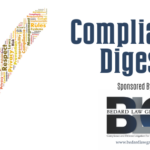A District Court judge in Hawaii has denied a defendant’s motion for summary judgment after it was sued for violating the Fair Debt Collection Practices Act because it sued to collect on an unpaid debt yet was not registered in the state as a collection agency.
A copy of the ruling in the case of Viernes v. DNF Associates, LLC, can be accessed by clicking here.
The defendant purchased a portfolio of debts, including one that was owed by the plaintiff to Kay Jewelers. The defendant filed suit, seeking to collect on the unpaid debt. The plaintiff sued, arguing the defendant violated the FDCPA and state law in Hawaii by attempting to collect on debt despite not being registered as a collection agency with the Hawaii Department of Commerce and Consumer Affairs. Specifically, the plaintiff alleged the defendant violated Section 1692e of the FDCPA, which prohibits making false, deceptive, or misleading representations when collecting on a debt. Legal precedent dictates that serving a complaint on a consumer is subject to the requirements of Section 1692e and counts as a communication.
In filing the motion for summary judgment, the defendant attempted to argue that it did not communicate with the plaintiff because the lawsuit was filed by the defendant’s lawyers.
But Judge J. Michael Seabright of the District Court for the District of Hawaii made short work of the defendant’s argument, extrapolating that if a lawyer’s work is not done on behalf of his or her client, then “any filings in courts, including this court, could never be attributed to the clients whom attorneys represent, including DNF’s own filings by its counsel here,” he said. “That cannot be.”
The defendant also attempted to argue that it did not meet the definition of debt collector under Hawaii law, even though the defendant did present an email exchange with a DCCA employee, who wrote that passive debt buyers may not meet the law’s definition of collection agency. But the employee also wrote, “[the DCCA] will not provide legal advice nor does the department provide legal interpretations. Should you believe that you are exempt from registering with the State of Hawaii, then the burden of proof would be upon you to show that registration was not necessary in the event of an investigation.” Judge Seabright ruled that the defendant did not meet its burden by only supplying the email exchange.









